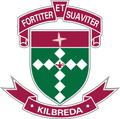Careers News

It’s never too early to start considering your future career directions. Many students often feel lost about what they would like to study and many feel like they don’t know where to start. There are many things to consider:
What are my future pathways after I complete Year 12?
Vocational or higher education?
Have a gap year or go straight into further study?
Can I afford to move away if I can’t study locally?
For students and their families who haven’t been to a university or TAFE information session, there are even more questions:
Where can I study the course I am interested in?
How do I choose between several courses across several institutions?
How much will my course cost?
How do I find out about scholarships?
What if I don’t obtain the ATAR I need?
What is university and TAFE actually like?
These decisions can be difficult to make, and then you have the added pressure of focusing on your studies and other commitments like sport, hobbies and employment. Not only can it be tough for students, but also for families.
Where do we access information?
How do we best support our child?
How can we afford the costs associated with further study?
Will Youth Allowance be available?
In conjunction with our newsletter, it is important to have good communication and teamwork skills to attend various Career Expos, Open Days, information sessions and career seminars. It has been reported that those students who undertake research on potential career options throughout their secondary years and who also remain flexible, are able to make more informed decisions. So while you’re enjoying your studies this year, be sure to stay updated. It may help you when it’s decision making time.
Preparing for the Year 11 to Year 12 Transition
While some students find the transition tfrom Year 11 to Year 12 easy, others find the increased workload and expectations quite overwhelming. Regardless whether students are prepared or not, many students look back and wish they had done things differently. Rowan Kunz (Founder and CEO of Art of Smart Education) interviewed some Year 12 students who have been through the transition and this is some of the advice they shared:
Start study notes from Week 1 and revise them…
This is the most common piece of advice! Good study notes are an important tool for memorising VCE content, revising for assessments and preparing for exams. Many students leave study notes to the last minute and try to complete them at the end of the term, or worse just before an exam.
An easier and more productive alternative is to work on study notes as the term progresses. So at the end of each week, add to your study notes starting in Week 1. If you haven’t started yet, start now. You may spend 2 or 3 hours each week working on study notes for VCE subjects, but it will involve a lot less cramming and overall stress.
The key is to then regularly revise these notes as this will help with exam preparation. Remember, it is much easier to memorise and understand content that you’ve seen 10 times before the exam, rather than what you’ve re-read once before.
Keep a study schedule and organised timetable…
It’s easy for students and parents to get overwhelmed during the transition from Year 11 to Year 12 as many students have a very busy schedule in Year 12 with school, study, extra-curricular activities and social events. The easiest way to stay organised is to design a study schedule. This is where you grab your weekly timetable and write down everything you’ve got scheduled regularly throughout the week including school and extra-curricular activities. Then organise time for study around regular activities and make it a non-negotiable part of the week. If you go to basketball training every Wednesday night as a non-negotiable activity, make studying on a Thursday evening a non-negotiable activity as well.
Start major assessment tasks as early as possible…
Most students are made aware when they have a major assessment task or a performance coming up in their VCE year. Students who have completed major tasks say the same thing - start as early as possible. This doesn’t mean finishing your task before the teacher has brought it up in class, but thinking about ideas you can take to your teacher to discuss, research, and start developing the early stages of your task. This will set you off on the right foot from the very beginning and prevent the panic and stress that comes from completing your work at the last minute before you need to submit it. Good luck!
See the attachment below for more information on Universities, Workshops, Important Dates and much more!
Laura Lunardi
Careers Coordinator


